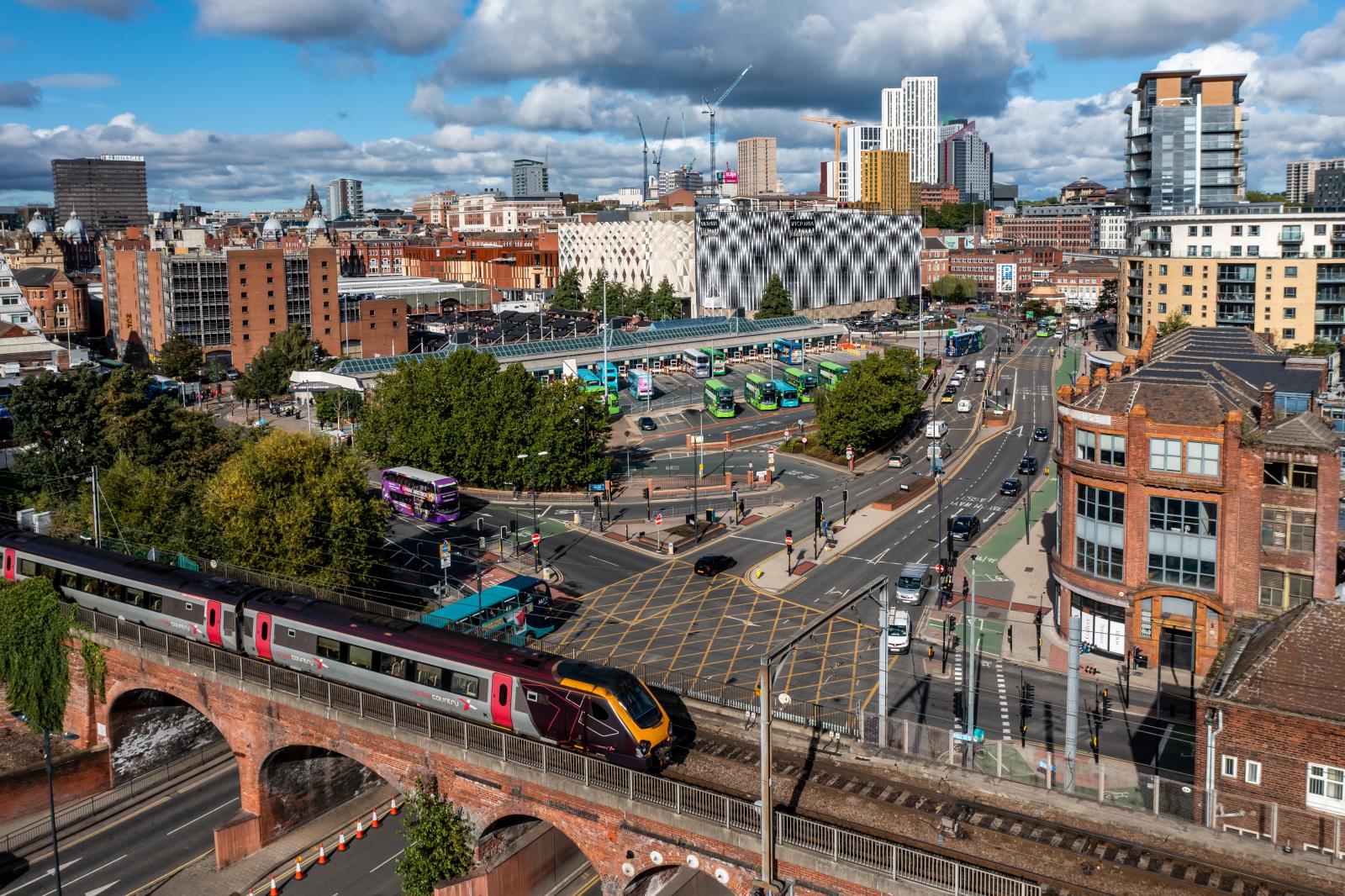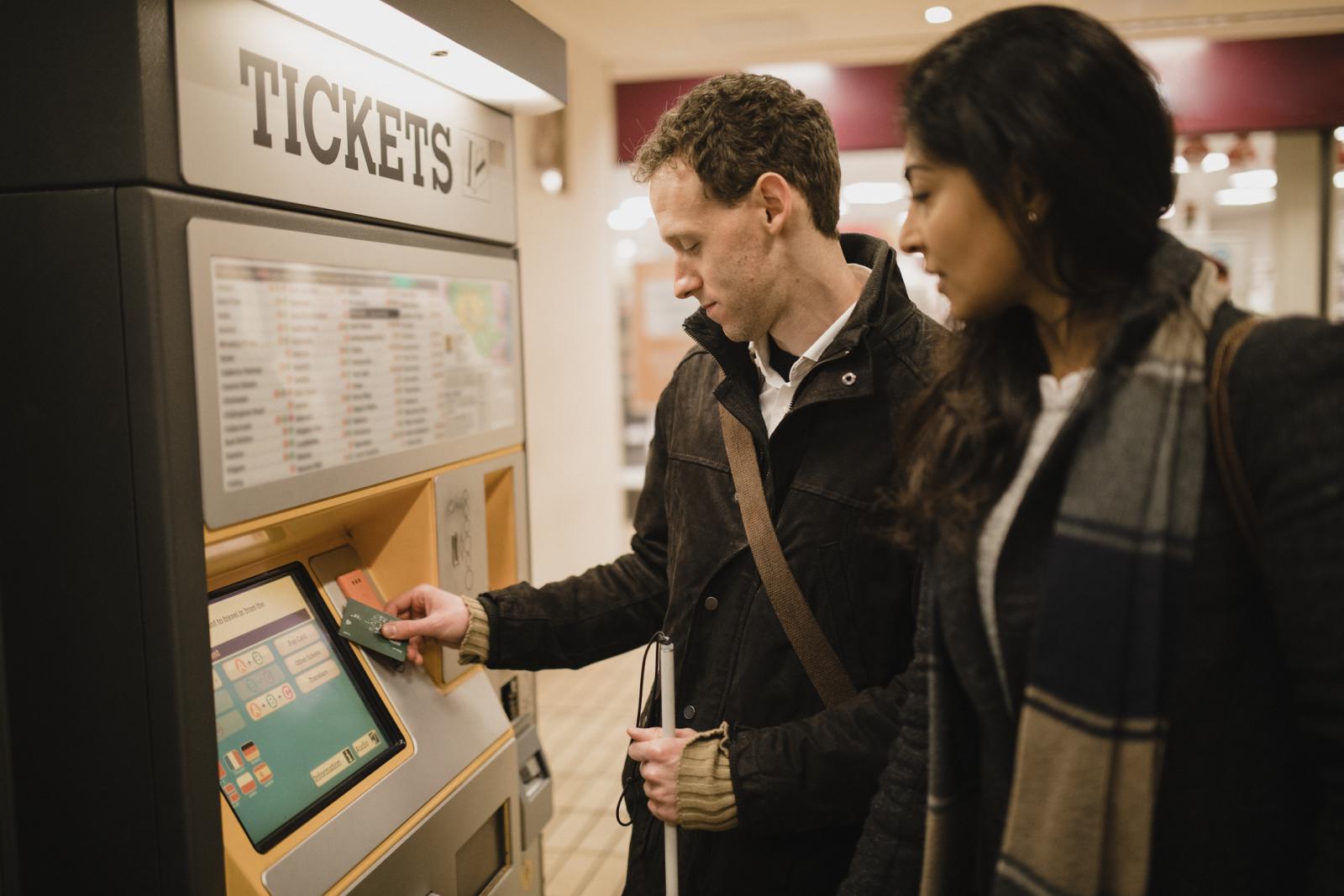The pathway to a brighter transport future
The fiscal imperative
The new Government has recognised the role that transport, and city regions, will play in fulfilling their central mission: to kickstart economic growth. Indeed, transport presents a real opportunity to support the government across all of its missions; accelerating the transition to net zero, breaking down barriers to opportunity, and keeping people safe and healthy. Transport is a fundamental enabler to achieving these goals.
Investment in public transport, walking and cycling, delivers considerable economic benefits. Funding for public transport, walking and cycling should be viewed, not as a cost, but as a vital investment in growth and opportunity, and ultimately a brighter future for our people and places. Public transport matters - economically, socially and environmentally.
We recognise the challenging fiscal environment the government faces. The upcoming Budget will require difficult decisions to be made. However, there is an urgent fiscal imperative for the Budget to confirm core transport funding. Without confirmation of this funding, there is a risk of undermining the opportunity for our city regions to play their full part in the delivery of the Government’s wider missions.
This paper explores the opportunity transport investment presents for the achievement of policy goals across government and the immediate funding priorities that must be addressed ahead of the Spending Review to enable this opportunity to be realised.

The Opportunity
Kickstarting economic growth
City regions are the key to improving the UK's wider economic competitiveness. Integrated public transport, walking and cycling networks enable people, places and businesses to reach their full potential.
In our city regions, there simply is not the space to continue to expand road capacity to accommodate growth. Without a high-quality public transport network, even a small increase in development, housing or economic activity will lead to a more than proportional increase in congestion, which can quickly escalate, capping economic growth and agglomeration potential.
Peak time congestion in the UK is more severe than in any other European country, largely due to an under-provision of public transport. Just 40% of residents surrounding Britain’s largest cities are able to travel into city centres using public transport in 30 minutes. This compares to almost 70% of residents surrounding similar-sized European cities. This lack of connectivity costs the UK economy more than £23.1bn per year.
Accelerating the transition to net zero
Net zero cannot be achieved without the urgent decarbonisation of transport and ensuring that travel by public transport, walking, cycling and wheeling is the desirable first choice for most everyday journeys.
Our recent report ‘A Smoother Ride: Unlocking a green bus revolution’ shows that around 15,000 buses operating in England’s major cities will need to shift to zero emission operation by 2036 if city regions are to hit their ambitious net zero targets. Investment is needed urgently to secure the benefits that zero emission buses can deliver.
Meanwhile, some 71% of all trips are under five miles and 46% of trips are under two miles. People should have attractive options to complete these short, everyday journeys using the greenest, most efficient modes.
Green benefits can be multiplied still further by ensuring the energy supply powering public transport is clean and renewable. For example, the tram networks in Manchester and Nottingham both run on 100% green, renewable energy. Commitment such as this from public sector large-scale consumers of electricity helps support the further growth of renewable energy, which in turn has a wider benefit as the nation seeks to position itself as a green energy superpower.
Breaking down barriers to opportunity
Transport has a vital role to play in connecting people to opportunities and improving quality of life. The transport choices that people are enabled to make have a significant impact on their ability to fully participate in society.
Some 22% of households in England do not have access to a car, rising to 40% of households in the lowest income quintile. For those without car access, walking is the main mode of travel, followed by bus.
A 10% improvement in access to bus services would mean 50,000 more people in work. In the 10% most deprived communities in England alone, research by the University of Leeds finds that a 10% increase in local bus service would:
- Reduce income deprivation by 2.8%, increasing the income of 22,647 people
- Reduce employment deprivation by 2.7%, meaning 9,909 more people in work
- Increase adult skills by 1.4%, or 7,313 more people with adult skills
- Reduce life years lost by 2,596 years
Investing in the future of bus services, together with measures to make it easier, safer and more attractive to walk, cycle and wheel, is an investment in social equity and helps to bring down the cost of living.
Keeping people safe and healthy
People’s transport choices have a direct impact on health. The ability to choose to walk, cycle or use public transport is an easy way to ensure everyone can be more active every day. Some 34% of public transport users achieve their recommended 30 minutes of daily exercise in the course of their journeys. In addition, more walking, cycling and public transport use means cleaner air and safer, more liveable streets.
Research on behalf of DfT found that each £1 invested in walking and cycling delivers an average of £5.60 of benefits, mostly from the health benefits and associated lower costs to the NHS. If each car user switched just one journey per month from car to bus by 2030, rising to two journeys per month by 2050, the health benefits (primarily from reduced traffic collisions and increased physical activity) would be in the region of £15bn. If zero emission buses were used, health benefits would be multiplied still further as communities would benefit from cleaner air.
Investment in public transport can also support the Government’s mission for safer streets and neighbourhoods. To be able to choose to use public transport, or to walk, cycle or wheel, people must feel that these spaces are safe for them. The work of the Transport Champions for Tackling Violence Against Women and Girls, for example, highlighted personal safety concerns as a significant barrier preventing women and girls from choosing these modes for more of their journeys. Investment in transport supports work to keep our streets, vehicles and infrastructure safe, ensuring everyone feels welcome, protected and respected.
The Ask
Our immediate funding priorities and recommendations focus on three priority areas:
Priority 1: Extend vital bus revenue funding support
- Extension of vital revenue support for bus for the period up to the start of the Spending Review period (April 2026).
This should include:
- Extension of Bus Service Improvement Plan (BSIP) funding
- Extension of Bus Service Operators Grant Plus (BSOG+) support
- Retention of the £2 fare cap, with sustainable revenue arrangements.
Priority 2: Long term capital and revenue funding for city regions and London
- Confirmation of the City Region Sustainable Transport Settlements (CRSTS) 2 indicative baseline and uplift (from Network North) funding allocations for 2027/28 – 2031/32.
- Confirmation of capital and revenue split parameters as part of CRSTS allocations.
- Funding certainty for Transport for London with a commitment to working towards a settlement to maintain and renew London’s transport assets.
- A commitment to providing a longer-term funding stream for the delivery of Zero Emission Buses (ZEBs) and associated infrastructure as part of the Spending Review.
Priority 3: Continuing support for devolution and a commitment to explore further local investment levers
- Development of consolidated, devolved, long-term transport funding settlements to all transport authorities, starting with a long-term revenue settlement for bus.
- A commitment to providing city regions with greater local investment levers as part of the Spending Review.
There is an imperative for the Chancellor to confirm core transport funding, specifically for the bus. Without it, the opportunity for our city regions to deliver economic growth and support the Government’s wider missions – and particularly its bold ambitions for bus through the Better Buses Bill – could be undermined.

The forthcoming Budget, whilst requiring difficult decisions, must safeguard core local transport funding to save the bus services on which so many people rely and to ensure transformational infrastructure projects can proceed. By addressing the immediate funding requirements set out in this report, our members can be enabled to meet the level of ambition set out by the government.
This represents a crucial bridge ahead of the multi-year Spending Review, a critical moment and an exciting opportunity to invest in the future of local transport and to empower devolved authorities to ensure it meets the needs and ambitions of the people and places served.

